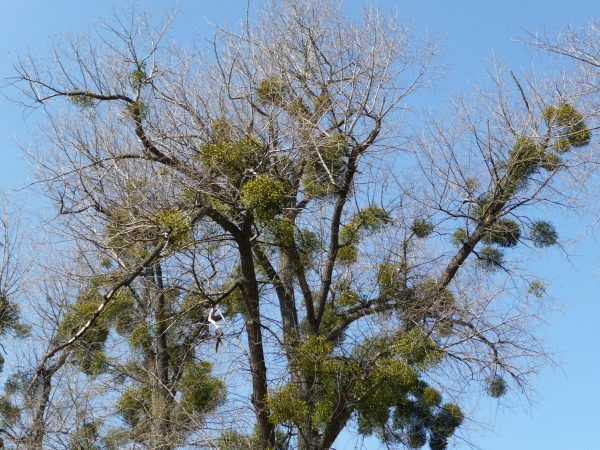Parasitic plants can connect to the vasculature of a host plant from which they take part or all of the water, nutrients, and assimilates they need to complete their life cycle. This parasitic lifestyle required that these parasitic plants evolved host detection, host attachment, host exploitation, and host defense suppression strategies. The elucidation of these strategies and the underlying mechanisms has in recent years been greatly facilitated by the advent of models species, molecular and genomic tools, and omics approaches such as transcriptomics and metabolomics. Intriguing findings include the discovery that small molecules, proteins, and RNA are exchanged between host and parasite; the elucidation of the importance of signaling molecules from the host in the induction of parasitic plant germination and haustorium formation; the finding that parasitic plants suppress the defense mechanisms of their host; and the discovery that parasitic plants have evolved a host detection mechanism. This newly generated scientific knowledge will help us to understand how parasitism in plants may have evolved, and will also contribute to new approaches to create resistance and develop new control measures for this important agricultural problem. This Focus Issue will showcase Updates and Research Articles in the field of parasitic plants on topics such as the parasitic plant life cycle and lifestyle (and how this compares to other pathogens), germination stimulants/strigolactones and the strigolactone receptor in parasitic plants, haustorium formation, the transfer of information between parasitic plants and their hosts, host manipulation by parasites, and the evolution of plant parasitism. Submissions within this theme might include studies on the evolution of plant–plant parasitism, physiological and molecular mechanisms underlying the host plant–parasitic plant interaction (including germination and haustorium formation), and information exchange between plant hosts and parasitic plants.
Authors interested in contributing should indicate this in the cover letter when submitting papers online at http://pphys.msubmit.net. Please select “Parasitic Plants” from the Focus Issue list in the online submission system. Articles published in Plant Physiology on this topic within 2 years before and after the Focus Issue publication date will be collected in an online Focus Collection.
To submit an article, go to http://pphys.msubmit.net.
Please contact Harro Bouwmeester (H.J.Bouwmeester@uva.nl), Claude dePamphilis (cwd3@psu.edu), Neelima Sinha (nrsinha@ucdavis.edu), or Julie D. Scholes (j.scholes@sheffield.ac.uk) for more information.
